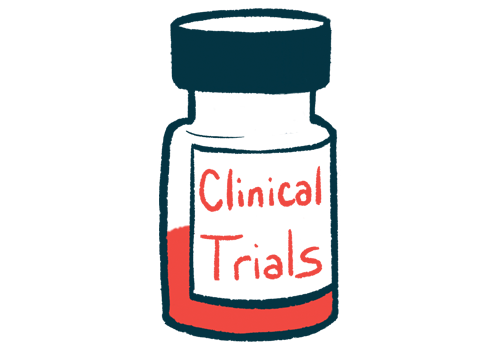Altoida’s artificial intelligence (AI)-powered device, intended to indicate the start of Alzheimer’s disease in adults with mild dementia but no evident disease symptoms, has been designated a breakthrough device by the U.S. Food and Drug Administration (FDA). The non-invasive device uses a software that measures and monitors neurocognitive function to diagnose and distinguish Alzheimer’s disease from other…
Author: Chris
#AAIC21 – BIIB080 Safely Lowered Tau Levels in Patients in Phase 1 Trial
BIIB080, an investigational therapy for Alzheimer’s disease, was safe and well-tolerated, and sustainably lowered patients’ levels of tau — a protein linked to neurodegeneration, according to topline results of a Phase 1b clinical trial. “There is clearly an urgent need to develop and deliver effective treatments for Alzheimer’s disease, a devastating disorder for which there…
#AAIC21 – Phase 3 Trial of Anti-inflammatory NE3107 Begins Enrolling
A Phase 3 trial testing NE3107, BioVie’s experimental anti-inflammatory insulin-sensitizing therapy, in adults with mild to moderate Alzheimer’s disease has enrolled its first patient. The study, called NM101 (NCT04669028), seeks to enroll up to 316 patients, ages 55–85 years at two sites in Florida. “NE3107 is the first potentially disease modifying, anti-inflammatory insulin sensitizer therapy…
#AAIC21 – Aduhelm Shows Range of Benefits in EMERGE
Treatment with Aduhelm (aducanumab) slows the clinical decline observed in in Alzheimer’s across a range of cognitive and functional measurements, according to a new analysis of data from a Phase 3 clinical trial. The results were presented at the Alzheimer’s Association International Conference (AAIC) 2021, held July 26–30 both virtually and in Denver, Colorado. The poster…
#AAIC21 – New Analyses Support Aduhelm’s Effects on Cognition
In clinical trials of the Alzheimer’s treatment Aduhelm (aducanumab), participants who experienced a greater reduction in brain levels of amyloid plaques — the abnormal protein clumps targeted by the treatment — tended to also experience a greater treatment benefit, in terms of cognition and functional ability, according to new analyses. The findings broadly support Aduhelm’s…
#AAIC21 – Most Aduhelm-linked Imaging Abnormalities Seen as Asymptomatic
Most amyloid-related imaging abnormalities (ARIA) occurring in Alzheimer’s patients receiving Aduhelm (aducanumab) are temporary, moderate in severity, and asymptomatic (without symptoms), according to an analysis of data from the Phase 3 ENGAGE and EMERGE trials. Most ARIA-edema (ARIA-E), or fluid accumulation in the brain, occurred within the first eight doses (six months) of Aduhelm treatment,…
New Cleveland Clinic Center Working to Prevent Alzheimer’s in Women
A new center at the Cleveland Clinic in Las Vegas, backed by broadcast journalist Maria Shriver, is focusing its efforts on preventing Alzheimer’s disease in women, who are more at risk of developing the disorder than men. Shriver has been a driving force in recognizing that Alzheimer’s disproportionately affects women. She became an advocate for…
#AAIC21 – Expert Group Publishes Guidance on Aduhelm’s Use
A panel of experts has crafted guidance for clinical use of Aduhelm (aducanumab), the first targeted treatment for Alzheimer’s disease recently granted accelerated approval by the U.S. Food and Drug Administration (FDA). The recommendations include criteria for determining those patients most appropriate for this once-monthly infusion treatment, and for monitoring safety with its use. The guidelines are…
#AAIC21 – Air Pollution Linked to Dementia Risk in Older Women
Limiting air pollution may slow cognitive decline and lower the risk of dementia for older women, according to three analyses involving more than 2,000 women, ages 74 to 92, living across the U.S. “We’ve known for some time that air pollution is bad for our brains and overall health, including a connection to amyloid buildup…
Amid Concerns, Aduhelm ‘Moving Forward’ as 1st Targeted Therapy
On June 7, Aduhelm (aducanumab) became the first new treatment for Alzheimer’s disease to be approved by the U.S. Food and Drug Administration (FDA) in nearly two decades, and this disorder’s first targeted therapy. Scarcely a month later, the agency took the unusual step of updating its label for the newly approved medication. It revised…











